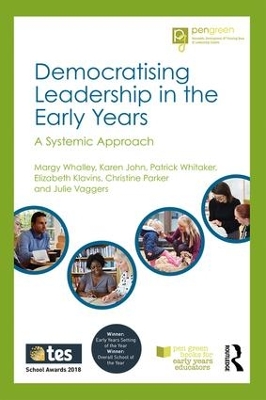Pen Green Books for Early Years Educators
2 total works
Democratising Leadership in the Early Years
by Margy Whalley, Karen John, Patrick Whitaker, Elizabeth Klavins, Christine Parker, and Julie Vaggers
Bringing together valuable insights from research and practice undertaken at the world-famous Pen Green Centre, Democratising Leadership in the Early Years illustrates how settings and practitioners can develop and maintain forms of leadership which foster collaborative practices across and within settings and services.
Effective leadership is key to establishing socially inclusive and democratic practices and as such, it has become a key concern for policy-makers, researchers and practitioners in the field of Early Childhood Education and Care. Drawing on authors' first-hand experiences, on systems theory, psychological theory and neuroscience, chapters in this book illustrate the role of highly effective leadership in ensuring that services are accessible, inclusive and innovative. Practical advice will support professionals in overcoming destructive systemic and psychological dynamics to flatten hierarchies, improve relationships, learning and educational outcomes, and to encourage staff, parents, and children to contribute creatively to collaborative enterprises.
Accessible and insightful, Democratising Leadership in the Early Years will improve understanding of approaches to leadership and support early years practitioners, students and managers as they develop their leadership skills and build capacity within settings and the wider community.
With the vast recent expansion of Children Centres, many practitioners and policy makers in the Early Years field are fascinated by the growth and success of the Pen Green centre which opened in 1983 and has gone on to be a Centre of Excellence for early years care and education locally, nationally and internationally.
This book explores the philosophy and practice of the Pen Green centre, and explains the vital and rewarding journey that staff, parents, families and the community have made. The contributors to this wide-ranging and insightful book
- expore the evolution of Pen Green's celebrated 'Learning to be Strong' programme, an assertiveness training programme for young children, that has been sustained over twenty-five years
-
- outline how the rich nursery curriculum has developed
-
- show how the work using schematic theory to understand children's cognitive and emotional concerns has been documented and has become central to Pen Green's pedagogical approach.
The book concludes with a chapter on the challenges for children's centres in the twenty-first century and explores how we can develop sustainable, responsive, accessible services which work, in that they transform children's life chances.

